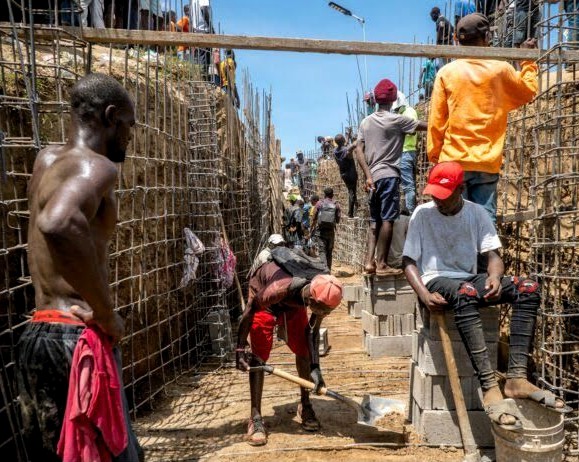Haiti: Kenyan intervention delayed; conflict grows over border canal
A month ago, it looked like U.S. Secretary of Defense Lloyd Austin had muscled an African state — Kenya — to provide a cover for U.S. intervention in Haiti. Once the “multilateral security and support” facade to authorize Kenya’s role was in place, the Joe Biden administration could start implementing its designs for Haiti and choke off a major source of migrants attempting to enter the U.S.
While the United Nations will not have responsibility for running the intervention, the U.N. Security Council approved the role Kenya had agreed to play.

Obstacles arise
The Kenyan Communist Party was the first organization inside Kenya to express a negative reaction to the intervention, which it did immediately. Later some major opponents of Kenyan President William Ruto and his Kenya Kwanza Alliance got a temporary restraining order against this deployment. The order was executed first for a week, then two weeks and finally a month. The Kenyan Parliament also wants a debate on the issue.
In the midst of all this political turmoil, King Charles III came on an official visit. His presence had no direct bearing on the Haitian deployment. It did, however, recall British imperialism’s torture and terroristic tactics, used in the 1950s when its colonial troops executed 10,000 Kenyans by hanging and tortured more in its failed attempt to continue its colonial rule by defeating the Mau Mau rebellion.
In the United States, some influential ruling class groups have begun to question whether Kenyan intervention can really function effectively in Haiti. An Oct. 12 article published by the Council on Foreign Relations expressed those doubts, adding that there is “a distinct possibility that the Kenyans may never make it to Port-au-Prince,” the Haitian capital.
Haitian hunger and the Massacre River Canal
About 50% of all Haitians are “food insecure,” which means they regularly don’t get enough food for “an active and healthy life.” Haitian farmers in northeast Haiti decided to do something to provide more food. They called for a konbit — a Haitian institution for farmers to get together to supply labor for whatever the community needs — to complete an irrigation canal that the Haitian government had begun years earlier.
More water — at a controlled rate — means bigger crops and more food. The canal would use water from the Massacre River, which forms a long section of the border dividing Haiti from the Dominican Republic and which was the site of the 1937 massacre of Haitians by the bordering country’s army.
Luis Abinader, president of the Dominican Republic, who is facing an election in 2024, had a swift, racist and harsh reaction to the Haitian canal. He decided to close all the borders — land, air and sea — as well as deport tens of thousands of Haitian workers. Given the close economic and cultural ties between the country and Haiti, these border closings had a major economic effect on the Dominican Republic’s economy.
The Haitian people’s reaction to Abinader’s moves was an enthusiastic mass embrace of all the work that a major construction project involves. Concrete blocks delivered on a truck were passed hand-to-hand, and the truck was emptied quicker than a forklift could do.
Food was prepared close to the workers, so they would have more time to do the job.
The videos were inspiring and the patriotic sentiment so intense that Haiti’s de facto government broke down and sent a committee of ministers — agriculture, the environment, commerce and industry — to meet with the committee organizing the konbit. The government is going to deal with a technical team from the Organization of American States called in by the Dominican Republic.
The U.S. has been portraying the major problem of Haiti as the fallout of the violent conflict among criminal gangs that it says engage in extortion, kidnapping, robbery and general lawlessness.
Washington refuses to clarify the U.S.’s own historic role in the multiple ways the U.S. has contributed to and caused Haiti’s problems, including military interventions and support for the most brutal of Haiti’s puppet dictators.
If the U.S. paid the reparations it owes to Haiti and stopped meddling in its internal affairs, the Haitian people are quite capable of constructing a modern, decent state. How they built their canal is a good example of their abilities.

